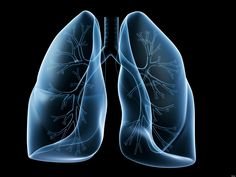Mold is a silent but potentially dangerous intruder in your home. It’s more than just an aesthetic problem—it can cause serious health issues, especially when left unchecked. Mold toxicity can lead to a range of symptoms that many people mistake for other conditions, delaying necessary action. If you’ve been experiencing unexplained health issues or suspect mold exposure, it’s important to recognize the warning signs and take immediate steps to protect your health.

This article will discuss the 10 warning signs of mold toxicity and what you can do to prevent and treat exposure.
1. Respiratory Issues
One of the most common and early signs of mold toxicity is difficulty breathing. Mold spores can irritate your respiratory system, causing coughing, wheezing, shortness of breath, and asthma-like symptoms. People with pre-existing respiratory conditions like asthma or COPD are at greater risk and may experience worsened symptoms when exposed to mold.

If you notice a sudden onset of these issues, especially at home or in a specific building, consider mold a possible cause.
2. Persistent Fatigue
Unexplained and persistent fatigue can also be a warning sign of mold exposure. If you feel excessively tired despite getting enough sleep, it may be because your body is trying to fight off the effects of toxins produced by mold, known as mycotoxins. These toxins can interfere with your immune system, making you feel exhausted even after minimal physical activity.

3. Headaches and Migraines
Frequent headaches or migraines could be linked to mold toxicity. Mold releases volatile organic compounds (VOCs), which can trigger inflammation in the brain and affect the central nervous system. If you’re experiencing chronic headaches that worsen when you’re at home, mold may be the culprit.
4. Sinus Problems
Mold spores can irritate your nasal passages, leading to chronic sinus infections, runny nose, and nasal congestion. You might also experience frequent sneezing and post-nasal drip. If you’ve been struggling with ongoing sinus problems despite medication or treatment, it’s worth considering if mold is present in your living or working environment.
5. Skin Irritation
Direct contact with mold can result in skin rashes, itching, or even hives. The mycotoxins produced by mold can enter your body through the skin and cause inflammation. Mold exposure may also exacerbate pre-existing skin conditions like eczema, making the symptoms more severe.
If you notice unexplained skin irritations, especially after spending time in a specific area of your home, mold could be a hidden trigger.
6. Cognitive Problems
Mold exposure can affect your cognitive function, leading to what is often referred to as “brain fog.” This includes memory problems, difficulty concentrating, and confusion. These symptoms are the result of mycotoxins disrupting the normal functioning of the brain. Many people with mold toxicity report feeling mentally sluggish and have trouble remembering simple things.
7. Allergic Reactions
Mold is a common allergen that can cause a variety of allergic reactions, even in people who have never experienced allergies before. These reactions may include sneezing, watery eyes, itchy throat, and skin rashes. If you notice that these symptoms flare up when you’re in a specific place, mold may be the cause.
8. Digestive Issues
While less common, mold exposure can also lead to gastrointestinal problems. Some individuals may experience nausea, vomiting, diarrhea, or stomach cramps as their body attempts to eliminate the mycotoxins. These symptoms can easily be mistaken for food poisoning or another digestive issue, making mold toxicity hard to diagnose.
9. Joint Pain and Muscle Aches
Mycotoxins produced by mold can cause inflammation in the body, leading to joint pain and muscle aches. Many people with mold toxicity report experiencing chronic pain in their joints or muscles without any clear reason. If these pains persist and seem unexplainable, mold exposure may be behind your discomfort.
10. Mood Changes
Mold exposure has been linked to changes in mood, including anxiety, depression, and irritability. The inflammation caused by mycotoxins can affect neurotransmitters in the brain, leading to shifts in mood and behavior. If you’ve noticed an increase in feelings of depression or anxiety, especially after spending time in a particular environment, it could be due to mold toxicity.
What to Do if You Suspect Mold Toxicity
If you believe you’re experiencing symptoms of mold toxicity, it’s crucial to address the problem as soon as possible. Here’s what you can do:

- Identify and Remove Mold Sources: Mold thrives in damp, humid environments. Check your home for water leaks, condensation, or areas with poor ventilation where mold can grow. Once found, mold should be professionally removed to ensure it does not return.
- Test for Mold: Consider professional mold testing if you can’t see mold but suspect its presence. Air and surface testing can reveal hidden mold in your home or workplace.
- Seek Medical Attention: Consult with a healthcare provider if you suspect mold toxicity. They may recommend treatments such as antihistamines, decongestants, or detoxification methods to help your body eliminate mycotoxins.
- Improve Air Quality: Use air purifiers equipped with HEPA filters to reduce mold spores in the air. Dehumidifiers can also help control the moisture levels in your home, making it less hospitable to mold growth.
- Strengthen Your Immune System: Support your body’s natural detox processes by eating a healthy diet, staying hydrated, and getting regular exercise. Certain supplements, like activated charcoal or bentonite clay, may help bind and eliminate mycotoxins from the body.
Conclusion
Mold toxicity can manifest in many ways, from respiratory problems to mood disturbances. Recognizing the warning signs early on can help you take action to protect your health and prevent long-term exposure. If you suspect mold is affecting your well-being, consider taking the necessary steps to eliminate mold from your environment and consult with a healthcare provider for proper treatment. By staying vigilant, you can protect your home, your health, and your overall quality of life.







Leave a Reply